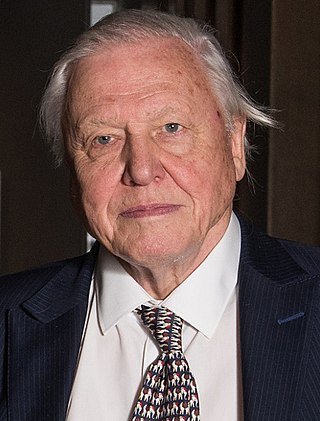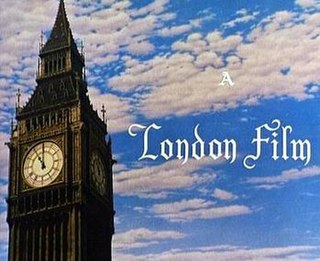
Aldous Leonard Huxley was an English writer and philosopher. His bibliography spans nearly 50 books, including novels and non-fiction works, as well as essays, narratives, and poems.

John Grierson was a pioneering Scottish documentary maker, often considered the father of British and Canadian documentary film. In 1926, Grierson coined the term "documentary" in a review of Robert J. Flaherty's Moana.

Robert Joseph Flaherty, was an American filmmaker who directed and produced the first commercially successful feature-length documentary film, Nanook of the North (1922). The film made his reputation and nothing in his later life fully equaled its success, although he continued the development of this new genre of narrative documentary with Moana (1926), set in the South Seas, and Man of Aran (1934), filmed in Ireland's Aran Islands. Flaherty is considered the "father" of both the documentary and the ethnographic film.

War film is a film genre concerned with warfare, typically about naval, air, or land battles, with combat scenes central to the drama. It has been strongly associated with the 20th century. The fateful nature of battle scenes means that war films often end with them. Themes explored include combat, survival and escape, camaraderie between soldiers, sacrifice, the futility and inhumanity of battle, the effects of war on society, and the moral and human issues raised by war. War films are often categorized by their milieu, such as the Korean War; the most popular subject is the Second World War. The stories told may be fiction, historical drama, or biographical. Critics have noted similarities between the Western and the war film.

Sir Peter Markham Scott, was a British ornithologist, conservationist, painter, naval officer, broadcaster and sportsman. The only child of Antarctic explorer Robert Falcon Scott, he took an interest in observing and shooting wildfowl at a young age and later took to their breeding.

The Living Desert is a 1953 American nature documentary film that shows the everyday lives of the animals of the desert of the Southwestern United States. The film was written by James Algar, Winston Hibler, Jack Moffitt (uncredited) and Ted Sears. It was directed by Algar, with Hibler as the narrator and was filmed in Tucson, Arizona. The film won the 1953 Oscar for Best Documentary.

Sir David Frederick Attenborough is an English broadcaster, biologist, natural historian and author. He is best known for writing and presenting, in conjunction with the BBC Natural History Unit, the nine natural history documentary series forming the Life collection, a comprehensive survey of animal and plant life on Earth.

Sir Julian Sorell Huxley was an English evolutionary biologist, eugenicist, and internationalist. He was a proponent of natural selection, and a leading figure in the mid-twentieth century modern synthesis. He was secretary of the Zoological Society of London (1935–1942), the first Director of UNESCO, a founding member of the World Wildlife Fund, the president of the British Eugenics Society (1959-1962), and the first President of the British Humanist Association.

The National Film Board of Canada is Canada's public film and digital media producer and distributor. An agency of the Government of Canada, the NFB produces and distributes documentary films, animation, web documentaries, and alternative dramas. In total, the NFB has produced over 13,000 productions since its inception, which have won over 5,000 awards. The NFB reports to the Parliament of Canada through the Minister of Canadian Heritage. It has bilingual production programs and branches in English and French, including multicultural-related documentaries.

Sir Alexander Korda was a Hungarian–born British film director, producer and screenwriter, who founded his own film production studios and film distribution company.

The March of Time is an American newsreel series sponsored by Time Inc. and shown in movie theaters from 1935 to 1951. It was based on a radio news series broadcast from 1931 to 1945. The "voice" of both series was Westbrook Van Voorhis. Produced and written by Louis de Rochemont and his brother Richard de Rochemont, The March of Time was recognized with an Academy Honorary Award in 1937.

London Films Productions is a British film and television production company founded in 1932 by Alexander Korda and from 1936 based at Denham Film Studios in Buckinghamshire, near London. The company's productions included The Private Life of Henry VIII (1933), Things to Come (1936), Rembrandt (1936), and The Four Feathers (1939). The facility at Denham was taken over in 1939 by Rank and merged with Pinewood to form D & P Studios. The outbreak of war necessitated that The Thief of Bagdad (1940) be completed in California, although Korda's handful of American-made films still displayed Big Ben as their opening corporate logo.

A nature documentary or wildlife documentary is a genre of documentary film or series about animals, plants, or other non-human living creatures, usually concentrating on video taken in their natural habitat but also often including footage of trained and captive animals. Sometimes they are about wildlife or ecosystems in relationship to human beings. Such programmes are most frequently made for television, particularly for public broadcasting channels, but some are also made for the cinema medium. The proliferation of this genre occurred almost simultaneously alongside the production of similar television series.

Ronald Mathias Lockley was a Welsh ornithologist and naturalist. He wrote over fifty books on natural history, including a major study of shearwaters, and many articles. He is perhaps best known for his book The Private Life of the Rabbit.

December 7th is a 1943 propaganda documentary film produced by the US Navy and directed by John Ford and Gregg Toland, about the December 7, 1941 attack on Pearl Harbor, the event which sparked the Pacific War and American involvement in World War II. Toland was also the film's cinematographer. The original version of this film, with a running time of 82 minutes, was not released but was retained by the National Archives. An edited version of 32 minutes length, which removed a long introductory segment and a shorter epilogue, was given limited release to specific audiences but won the Academy Award for Best Documentary in 1944. This is the only film Toland ever worked on for which he received a director credit.

Asif Kapadia is a British filmmaker.
Ludwig Paul Koch MBE was a broadcaster and sound recordist. An expert on recording animal sounds, he played a significant part in increasing the British public's appreciation of wildlife.
Fergus McDonell (1910-1974) was an English film editor and director. He was nominated for the Academy Award for Best Film Editing for Odd Man Out (1947), and his film The Hideout received a nomination for Best British Film at the 1949 BAFTA Awards.
Wendy Tilby and Amanda Forbis are a Canadian animation duo. On January 24, 2012, they received their second Oscar nomination, for the National Film Board of Canada (NFB) animated short film, Wild Life (2011). With their latest film, The Flying Sailor, they received several nominations and awards, including for the Best Canadian Film at the Ottawa International Animation Festival, and on January 24, 2023, they received a nomination for the 95th Academy Awards under the category Best Animated Short Film.

Naresh Bedi is an Indian filmmaker, the eldest of the Bedi Brothers and a member of the second generation of three generations of Wildlife photographers and filmmakers. He is the first Asian to receive a Wildscreen Panda Award and the first Indian to receive a wildlife film nomination for the British Academy Film Awards. He was honoured by the Government of India in 2015 with Padma Shri, the fourth highest Indian civilian award.

















